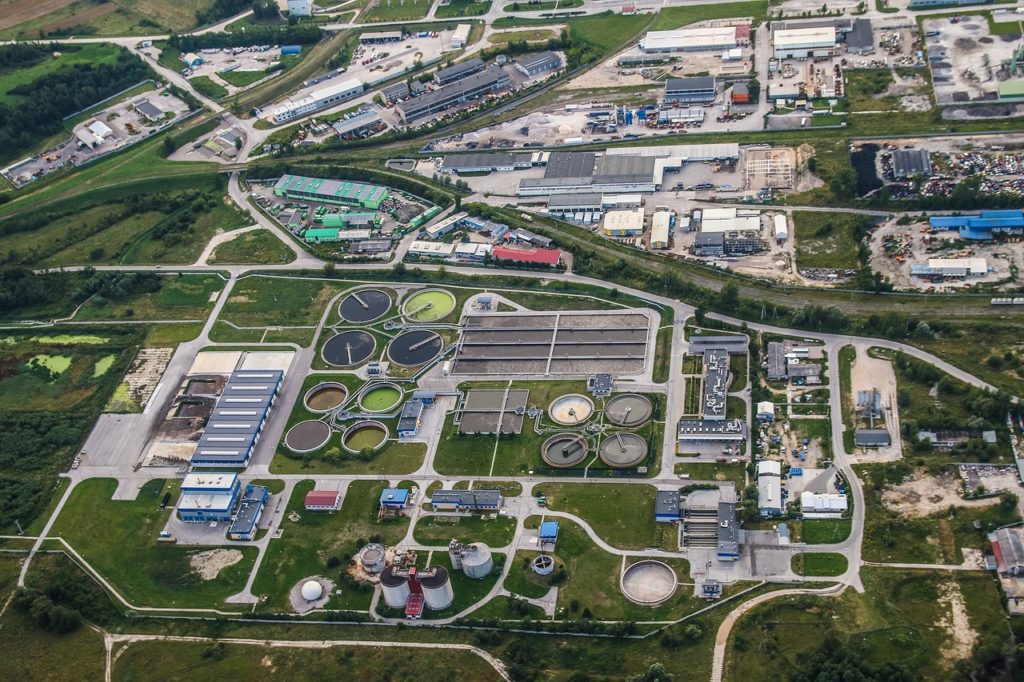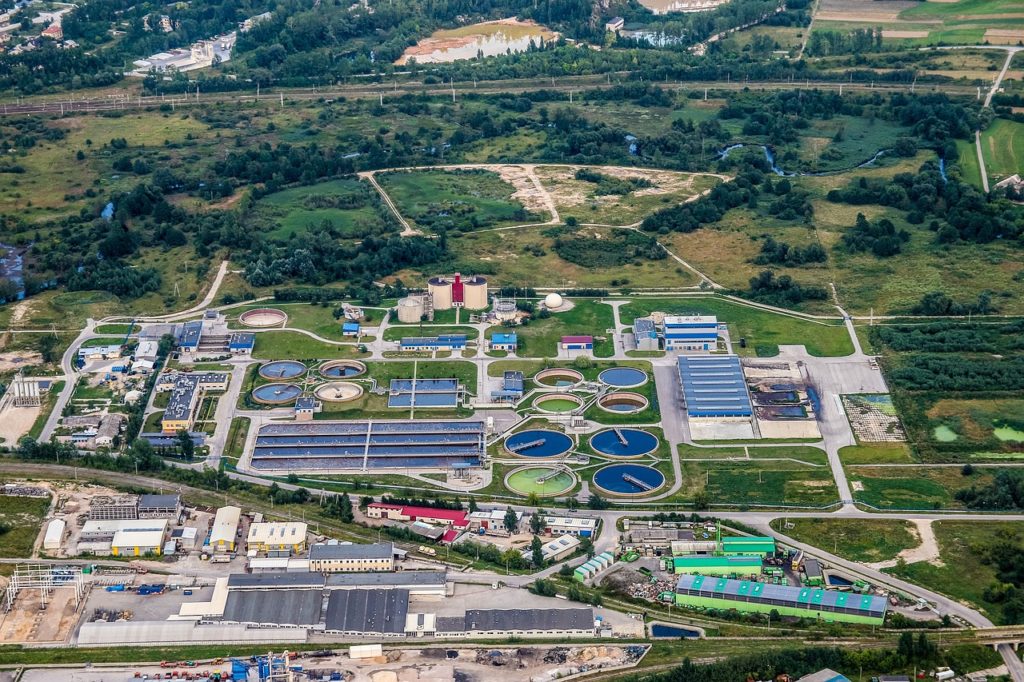Have you ever wondered about the importance of proper wastewater treatment plant maintenance? Ensuring the effective operation and longevity of these crucial facilities while safeguarding public health and the environment is no small feat. Regular maintenance helps prevent equipment failures, reduce energy consumption, and minimize the risk of costly repairs. By understanding the significance of proper wastewater treatment plant maintenance, you can appreciate the vital role these facilities play in keeping our communities clean and safe.
The Significance of Proper Wastewater Treatment Plant Maintenance

Introduction
Proper maintenance of wastewater treatment plants plays a crucial role in ensuring a healthy and sustainable environment. As a responsible member of the community, it is important to understand the significance of regular maintenance and its impact on various aspects of our lives. From cost efficiency to environmental protection, public health, and safety, compliance with regulations, optimal treatment process, prevention of equipment failures, effective odor control, prevention of contamination, and long-term sustainability — each of these factors will be explored in this article. By prioritizing the maintenance of wastewater treatment plants, we can create a cleaner and safer world for ourselves and future generations.
Cost Efficiency
Regular maintenance of wastewater treatment plants brings significant cost benefits. By identifying and addressing issues promptly, maintenance activities help prevent larger and more expensive repairs or replacements in the future. Proactive maintenance not only reduces downtime but also optimizes the efficiency of plant operations, resulting in lower energy consumption and operational costs. In addition, well-maintained equipment and systems have a longer lifespan, reducing the need for frequent capital investments. By investing in timely maintenance, you can save your utility company and the community substantial amounts of money in the long run.

Environmental Protection
Wastewater treatment plants play a critical role in protecting our environment by removing pollutants and contaminants from wastewater before it is discharged back into natural water bodies. Effective maintenance ensures that treatment processes are functioning at optimal levels, minimizing the risk of untreated or inadequately treated wastewater being released into the environment. By properly maintaining the various components of a treatment plant, such as screens, pumps, and aeration systems, you can help prevent the release of harmful substances and protect the health of aquatic ecosystems, wildlife, and vegetation.
Public Health and Safety
Maintaining wastewater treatment plants is essential for safeguarding public health and safety. Untreated or poorly treated wastewater can contain harmful bacteria, viruses, and chemicals that pose significant health risks to humans and animals. Regular maintenance activities, such as cleaning and disinfection of treatment tanks and pipelines, ensure the removal of pathogens and contaminants that could otherwise find their way into our water supply. By properly maintaining and monitoring the treatment plants, you can help prevent outbreaks of waterborne diseases and ensure a safe water system for everyone in the community.

Compliance with Regulations
Wastewater treatment plants must comply with strict regulations and standards set by local, state, and federal governing bodies. Failure to meet these requirements can result in fines, legal consequences, or even the suspension of operations. Regular maintenance helps to ensure that treatment plants remain in compliance with these regulations. By conducting routine inspections, testing, and documentation of maintenance activities, you demonstrate your commitment to upholding these standards and protecting the environment and public health.
Optimal Treatment Process
Efficient and effective wastewater treatment relies on thorough maintenance practices. Regular inspection and cleaning of treatment tanks, clarification systems, and filtration units help maintain the desired treatment levels. By monitoring and adjusting key parameters such as pH levels, dissolved oxygen, and nutrient concentrations, you can optimize the treatment process to ensure the removal of contaminants to acceptable levels. Well-maintained plants are also better equipped to handle fluctuations in wastewater flow and quality, therefore providing consistent and reliable treatment outcomes.
Prevention of Equipment Failures
Maintenance activities are vital for preventing unexpected equipment failures that can disrupt plant operations and lead to costly repairs. Regular inspections and lubrication of mechanical components, such as pumps, motors, and valves, help detect and address any signs of wear and tear before they escalate into major issues. Additionally, proactive maintenance plans include the timely replacement of parts that are nearing the end of their lifespan, averting potential breakdowns. By prioritizing the upkeep of plant equipment, you can minimize downtime and ensure continuous, uninterrupted wastewater treatment.
Effective Odor Control
Unpleasant odors are often associated with wastewater treatment plants and can negatively impact nearby communities. Regular maintenance of odor control systems, such as biofilters and activated carbon adsorbers, helps minimize odorous emissions. Routine inspections and cleaning of ventilation systems can also prevent the buildup of foul-smelling gases within treatment facilities. By ensuring proper operation and maintenance of odor control mechanisms, you can create a more pleasant living environment for those living or working near the plant.
Prevention of Contamination
Maintenance activities are crucial in preventing contamination of water sources and surrounding areas. By regularly inspecting and maintaining the integrity of pipelines, tanks, and other infrastructure, you can minimize the risk of leaks, spills, or seepage. Adequate maintenance protocols also include the proper handling, storage, and disposal of chemicals and hazardous materials used in the treatment process, reducing the likelihood of accidental releases. By preventing contamination, you contribute to the preservation of clean and safe water resources that are essential for the well-being of both humans and the ecosystem.
Long-Term Sustainability
Proper maintenance of wastewater treatment plants is essential for ensuring their long-term sustainability. By implementing comprehensive maintenance strategies, operators can extend the lifespan of treatment facilities, minimize the need for costly upgrades or replacements, and reduce the overall environmental footprint of the plant. Additionally, maintenance activities provide valuable data and insights that can be used to optimize the design and operation of future treatment plants, further enhancing sustainability efforts. By prioritizing long-term maintenance and investing in regular upkeep, we can continue to enjoy the benefits of clean water for generations to come.
In conclusion, the significance of proper wastewater treatment plant maintenance cannot be overstated. From cost savings and environmental protection to public health and regulatory compliance, regular maintenance activities are essential in ensuring the efficient and reliable functioning of treatment plants. By making maintenance a priority, we can contribute to a cleaner, safer, and more sustainable world for ourselves and future generations. So let us all take responsibility and support the proper maintenance of wastewater treatment plants to protect our environment, safeguard public health, and secure a brighter and more sustainable future.



